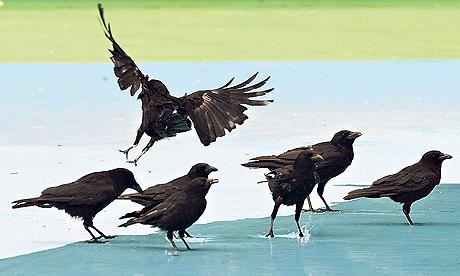Do Animals Tell Stories?
Source: realclearscience.com

A litany of stories is told within the human mind each day. In a form of "mental time travel," we consciously reconstruct past events to help instruct our present actions.
For example, you might recall that Aunt Margie’s garlic potatoes, served at your family’s last holiday party, were a little heavy on the cream and butter. After devouring three helpings, you became bloated and gassy. Thus, if the dish is served again this year, you’ll scarf only one helping, instead. (Okay, maybe two.)
The process of recalling past situations in narrative detail is called episodic memory. You remember when the event happened, where it happened, what was involved and other context-specific information. These facts come together to form an internal story of sorts.
As far as we know, most other animals do not have episodic memory. Endel Tulving, the influential cognitive psychologist who was the first to differentiate episodic memory from other types, says that animals can adjust, adapt, and learn, but they cannot "travel back into the past in their own minds."
But there are scientists who are working to build a convincing case to the contrary. In a 2006 review, German researchers at Heinrich-Heine-University agglomerated 30 studies examining episodic-like memory in numerous species. According to animal behaviorist, Dr. Patricia McConnell:
In one study cited in the paper (Menzel 1999), a language-trained chimpanzee observed a caretaker hiding a food beyond the fence of the enclosure, out of reach of the chimp. Sixteen hours later, the chimp recruited a different caretaker, who did not know where the food had been hidden, indicated the kind of food hidden and directed the caretaker to the food itself.
In this fascinating instance, the chimp was not only able to recall what it had witnessed, but was able to impart that information -- the when, where and what -- to a human.
More compelling evidence for animal episodic memory originated from a study on scrub jays (medium-sized social birds similar to bluejays). These birds are commonly known to store food in various locations within their territories, over elongated spans of time. Such behavior obviously requires excellent memory.
[...]
Read the full article at: realclearscience.com






















